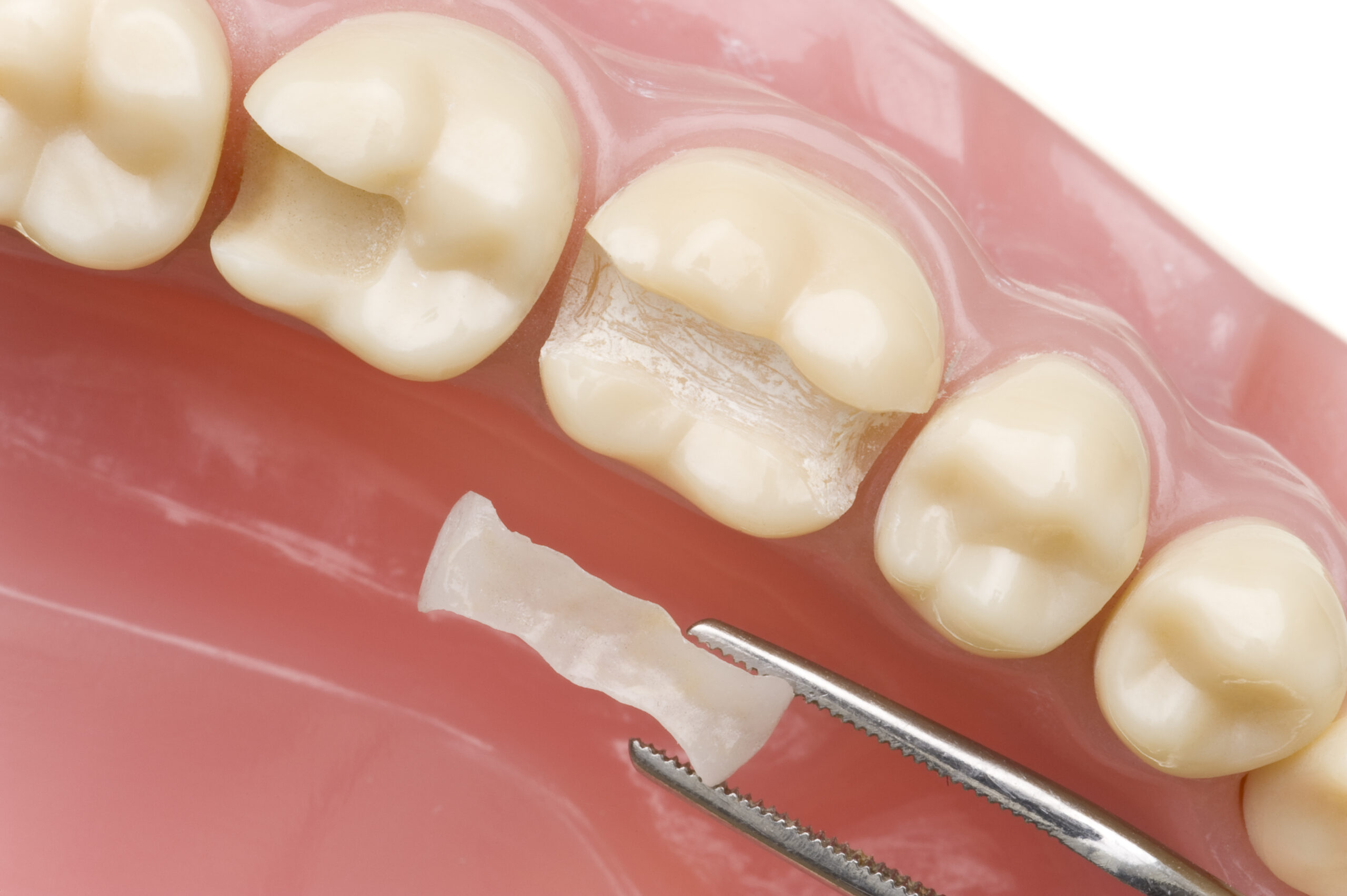Fillings
Restorative dentistry in Merrylands
Fillings
A tooth filling is a dental procedure used to restore a tooth damaged by decay or aggressive brushing back to its normal function and shape. Small to medium-sized cavities can be effectively treated with white fillings to prevent them from worsening. However, if you’re experiencing significant pain or have a large cavity, a Root Canal procedure may be necessary. Don’t neglect your oral health – visit us to assess and address your dental needs promptly.
Frequently Asked Questions
What type of filling material will be used?
Generally, for permanent fillings, composite or white fillings are commonly used. Composite resin is a durable and aesthetically pleasing material that bonds directly to the tooth structure, providing strength and support. It is also tooth-colored, making it a popular choice for fillings that are virtually invisible. Composite fillings are versatile, easy to shape, and resistant to wear, offering a long-lasting solution for tooth restoration.
For temporary fillings, Glass Ionomer Cement (GIC) is often used. GIC has several advantages, such as releasing fluoride over time, which helps in preventing further tooth decay. Additionally, it adheres well to the natural tooth structure, making it a reliable short-term solution. GIC is also less sensitive to moisture during placement, which allows for easier application in challenging environments.
How long will the procedure take?
Fillings typically take around 20-30 minutes per tooth. However, the procedure may take longer if anesthetic is required for sensitive teeth or if the cavity is more complex.
Are there any risks or potential complications associated with the filling procedure?
While dental fillings are a common and safe procedure, there are some potential risks or complications to be aware of:
- Tooth Sensitivity: After the filling, your tooth may be sensitive to hot, cold, or pressure for a few days. This is typically temporary but should be monitored if it persists.
- Filling Wear or Damage: Over time, fillings may wear down or crack, requiring repair or replacement. Hard or sticky foods can accelerate this process.
- Infection or Decay Under the Filling: If the filling is not sealed properly or if oral hygiene is neglected, bacteria can enter and cause decay underneath the filling.
- Tooth Fracture: In rare cases, the tooth may fracture if the filling is too large or the tooth is weakened from extensive decay. This potential risk will be warned to you as such teeth may need crown for better protection.
It’s important to attend follow-up appointments and maintain good oral hygiene to minimize these risks.
Will I experience any pain or discomfort during or after the procedure?
During the filling procedure, you shouldn’t feel pain, as a local anesthetic is typically used to numb the area. You may feel pressure or slight vibrations from the dental tools, but discomfort is minimal.
After the procedure, it’s normal to experience mild sensitivity to temperature or pressure for a few days. This sensitivity usually subsides on its own. If you continue to feel discomfort or experience significant pain after a few days, it’s best to call and book for review for further evaluation.
Will the filling match the color of my teeth?
We carefully select a shade that matches your natural tooth color before every filling, especially for front teeth or if you’re considering composite veneers. This ensures a seamless and natural-looking result.
How should I care for my tooth after the filling?
After getting a filling, you should follow these care tips to ensure its longitivity:
- Avoid Chewing on the Filled Tooth Immediately: If you received an anesthetic, wait until the numbness wears off to avoid accidentally biting your cheek or tongue.
- Maintain Good Oral Hygiene: Continue brushing twice a day and flossing daily to prevent decay around the filling.
- Avoid Hard or Sticky Foods: For the first 24 hours, avoid hard or sticky foods that could put pressure on the new filling.
- Manage Sensitivity: It’s normal to experience mild sensitivity to hot, cold, or pressure after a filling. This usually subsides within a few days. If sensitivity persists, consult your dentist.
- Regular Dental Visits: Attend regular check-ups to ensure the filling remains in good condition and your overall dental health is maintained.
Are there any foods or activities I should avoid after getting a filling?
After getting a filling, it’s important to take precautions to ensure the filling lasts as long as possible:
- Avoid Hard or Sticky Foods: For the first 24 hours, avoid hard foods (like nuts or ice) and sticky foods (like gum or caramel), which can put pressure on or dislodge the filling.
- Limit Hot or Cold Beverages: Right after the procedure, your tooth may be sensitive to extreme temperatures. Stick to lukewarm or room temperature foods and drinks for the first day.
- Chewing with Care: Try to chew on the opposite side of the mouth for the first few hours after a filling, especially if the anesthetic is still wearing off.
- Avoid Grinding Teeth: If you grind your teeth at night, consider wearing a nightguard to protect the filling and prevent wear.
A filling typically lasts about 5-6 years, but with proper care, it can last even longer. Regular dental check-ups, good oral hygiene, and avoiding excessive pressure on the filled tooth will help prolong the life of the filling.